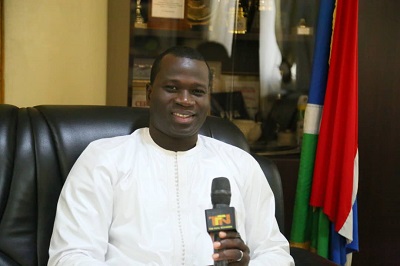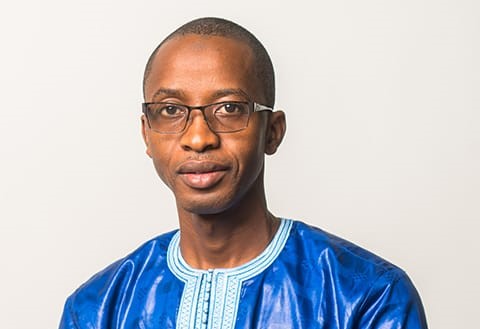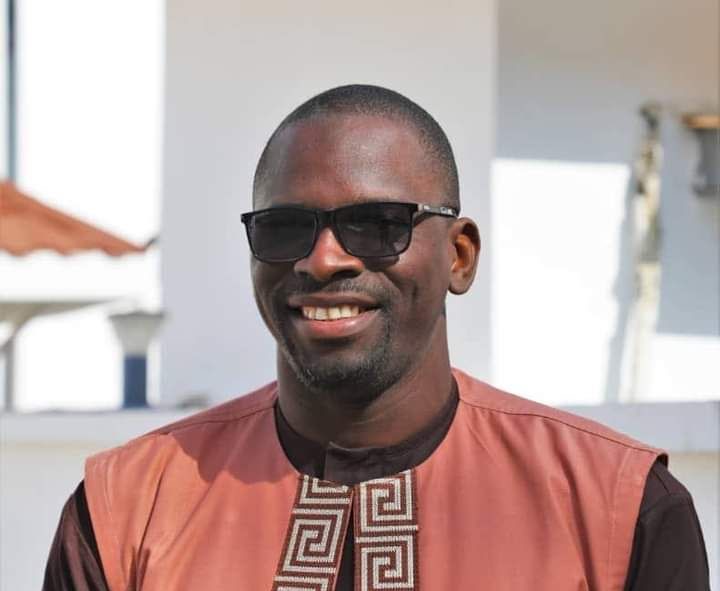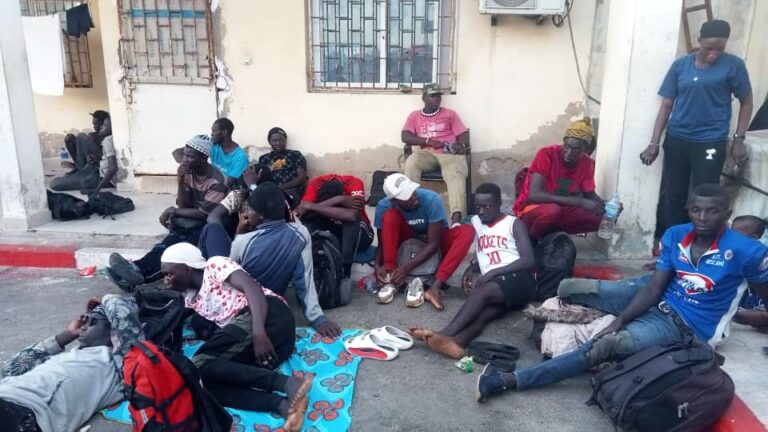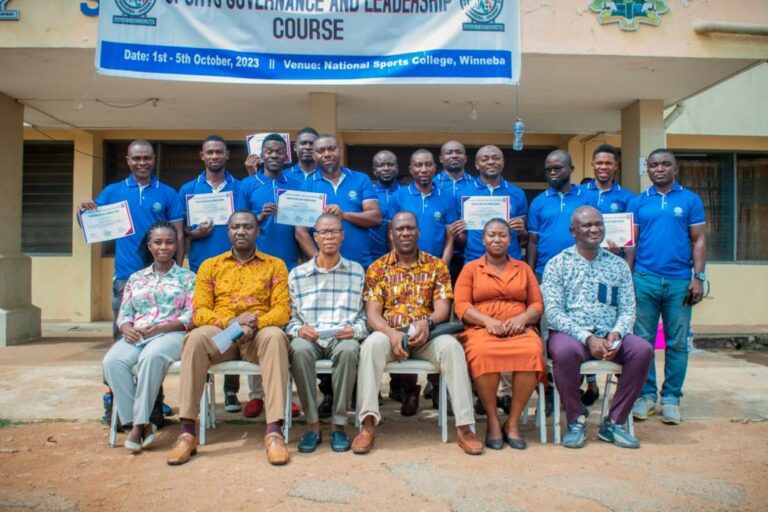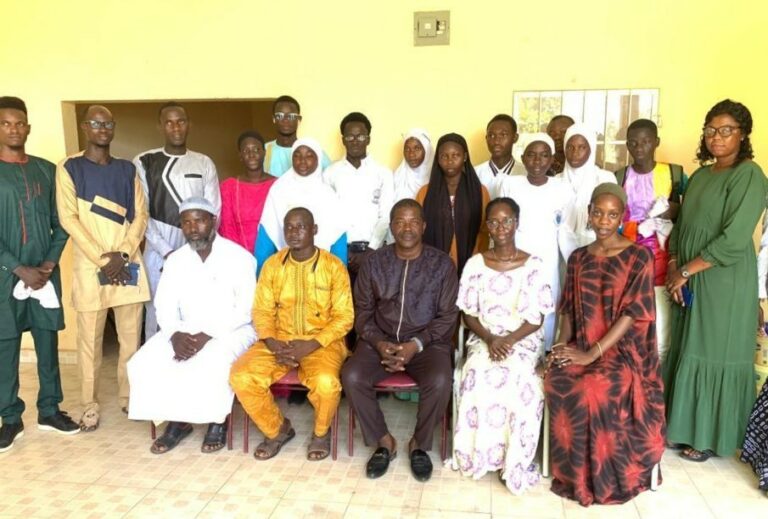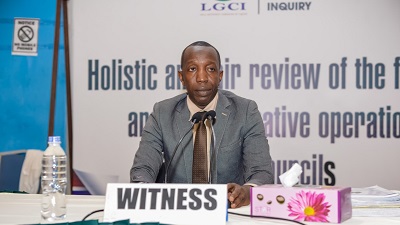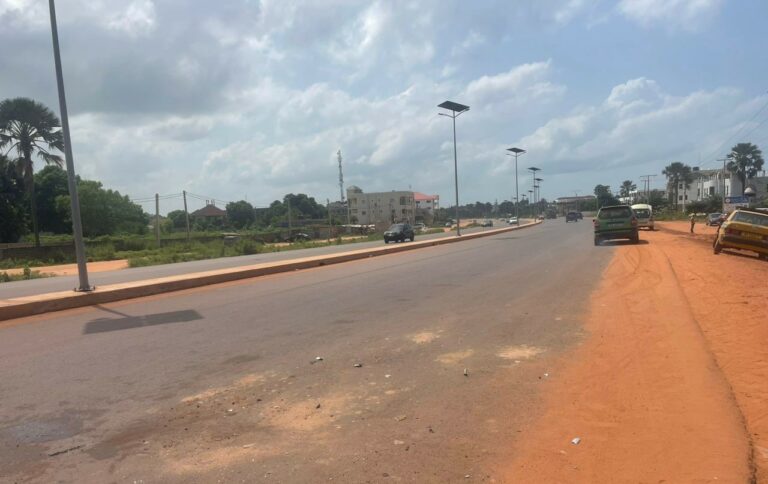OPINION
Co-authored by Alieu Fatty, Student at the Ahmadiyya International University Ghana and Musa Bah, Vice President, Writers’ Association of The Gambia
Last week, the world saw one of the oldest global conflicts between Israel and Palestine spiral into an unprecedented tragic loss of lives in both countries – to a far greater extent in Palestine. This has become a major concern for the international community and the world by extension.
History, it is said, repeats itself, and sometimes tragically so. It has also been said that fighting evil or wrongdoing is made more difficult by the fact that if one is not careful one may end up incarnating the very evil one was fighting. This is evinced by the fact that the Jews, historically victims of the Holocaust, now seem to be doing a similar thing to the Palestinians. Many forms of evil and injustices go on in this world and are often fuelled by a bias media. The traditional media outlets have often displayed open biases which have literally cost lives in many parts of the world. This problem has now been compounded by social media and what is referred to as citizen journalism.
Listening to the reports on the Israeli-Palestinian conflict on some of these traditional media outlets like the BBC, CNN and others, one is obviously tempted to belief that the Palestinians are the sole perpetrators of evil in the Middle East. They refer to them as terrorists and present them as people bent on destabilizing the state of Israel. The fact that the Palestinians also deserve to have a state of their own but are rather under the repressive occupation of the Israelis is downplayed.
It is important to delve into the history of this conflict and present the true facts of the matter. The Palestinians are merely reacting to the actions of the Israelis and therefore it is wrong to heap the entire blame on them and present the Israelis as a peaceful people who are being attacked and are therefore victims.
When the Ukraine war began, some media outlets presented it as the ultimate evil because ‘these people look like us; they are not some third world country or people from the Middle East’. One is at a loss to understand what such phrases like the above mean or say about the outlets that spew it. Do they intend to say that it is normal to rain bombs and airstrikes against people in the third world or those in the Middle East but that such should never happen if the people concerned look like them?
Since the start of the conflict proliferation of false claims, propaganda, and misrepresented images and videos has inundated social media platforms, with individuals disseminating unverified information without considering the potential consequences of exacerbating the conflict.
Fakes news is created and spread around the world to change people’s beliefs, attitudes, or even perceptions, so people will ultimately change their behaviour. This means if one falls into the trap of believing fake news, such a person’s beliefs and decisions are being driven by someone else’s propaganda.
Even major Western news organisations such as the BBC, CNN, and the LA Times, typically regarded as sources of credible global news, have faced significant criticism and public backlash for perceived biases, inaccuracies, misleading reporting, hypocrisy, and the propagation of false conspiracy theories in the context of this conflict.
For example, one report that came to the spotlight regarding the bias and hypocrisy of Western media, was particularly pointed out when BBC reported on X (formerly Twitter), that “More than 500 people have died in Gaza after Israel launched massive retaliatory air strikes, according to Gaza’s health ministry” The report also states with regards to the situation in Israel that “More than 700 people have been killed in Israel since Hamas launched its attacks on Saturday”.
Many were quick to point out the BBC’s biases in using a softer tone when describing the deaths in Gaza, stating that “More than 500 have died.” In contrast, they employed a more severe term for the causalities in Israel, saying “More than 700 people have been killed.” The choice of the words “killed” for Israel and “died” for Gaza creates a perception of greater suffering and victimisation on one side.
The report’s language and framing contribute to a biased representation of the conflict by emphasising causalities on one side while downplaying those on the other, and by presenting one side as a reaction to aggression and the other as an initiating force.
Other equally famous media outlets that entice huge subscribers from social media and print media have also succumbed to the act of making similar uncorroborated reports of “decapitated babies” by the Hamas group.
Sara Sindner, a journalist who works for CNN made the news of “beheaded babies” by the Hamas group, but later on apologised for reporting such misleading news. She wrote on X: “Yesterday the Israeli Prime Minister’s office said that it had confirmed Hamas beheaded babies & children while we were live on the air. The Israeli government now says today it CANNOT confirm babies were beheaded. I needed to be more careful with my words and I am sorry.”
In addition, the spokesperson and senior official of the Hamas militant group, Izzat al-Risheq in a press release has denied the group’s involvement in such atrocities. He said:
“Spread lies about our Palestinian people and the resistance claiming that members of the Palestinian resistance beheaded and attacked women with no evidence to support such claims and lies.”
“We strongly condemn the fabricated and baseless allegations promoted by the occupation in attempt to cover up for the massacres, crimes, and genocide committed in Gaza.”
The group, in another media source, regarded the accusation as Israeli propaganda allegedly “fabricated and disseminated by certain Western media outlets that uphold the Zionist narrative.” The statement defended their audacious attack on Israel by stating that they had only attacked the Israeli military and security apparatus, which they deemed a legitimate target.
Even though one can argue that the CNN journalist has apologised for her actions in misleading the world, however, the bitter truth is the apology cannot equate the tragic consequences it has done. The media has succeeded in spreading and depicting innocent Palestinians as terrorist; thus, becoming the targets of hate all over the world.
Just recently in the USA a news story featured in the New York Times has it that a 71 old landlord has attacked his tenant woman and his six-year child, fatally killing the young innocent boy for being a Palestinian Muslim.
“A man who targeted a 6-year-old boy and his mother for being Muslims brutally attacked them, killing the boy and wounding the mother at a residence outside Chicago on Saturday. The man accused in the attack was their landlord, the authorities said.”
The suspect whose action was premeditated by anti-Muslims was reportedly heard yelled, “You Muslims must die!”
According to other newspapers the attacker mercilessly stabbed the six-year-old child 26 times.
The Holy Qur’an 1400 years ago laid down the standards for authenticating news contents or rumours one hears before spreading them. It states that when a matter is brought before you, no matter who the news teller is and the content of the substance is, the Islamic teaching is that both the content of the information and the person that brought the news should be closely examined, and one should not engage in spreading such unverified news unless the verification is done through the agencies of the rightful authorities.
Allah the Almighty states in Chapter 49 Verse 7
يَا أَيُّهَا الَّذِينَ آمَنُوا إِن جَاءكُمْ فَاسِقٌ بِنَبَأٍ فَتَبَيَّنُوا أَن تُصِيبُوا قَوْمًا بِجَهَالَةٍ فَتُصْبِحُوا عَلَى مَا فَعَلْتُمْ نَادِمِينَ
“O ye who believe! If an unrighteous person brings you any news, ascertain the correctness of the report fully, least you harm a people in ignorance, and then become repentant for what you have done.”
The Holy Prophet Muhammadsa has also warned Muslims to shun away from spreading unverified news to the public. He declared such a person as a lair who hears news or rumours and begins spreading it to others without confirming the authenticity of the news.
The Holy Prophet Muhammadsa said:
كفي بالمرء كذبا ان يحدث بكل ما سمع
“A reason sufficient to determine an individual’s dishonesty is that he begins forwarding the narrations he hears without investigation.” (Ṣaḥīḥ Muslim Hadith 6)
During this war or even in other conflicts, it is imperative that whenever we hear news or rumours of any sort instead of spreading it to others, we must probe whether the information is verified by the legal state agencies. Otherwise, we could be the source of spreading falsehood in the society which can bear harmful consequences.
In today’s fast-paced world of social media, the viral spread of malicious information countering credible reports at the same speed has become the modern modus operandi of warfare- against rival countries as is apparent in the ongoing conflict.
Nevertheless, this goes contrary to the Islamic teachings on the rules of war. The Holy Quran has in fact very strictly commanded the Muslims, to never abandon the path of justices when involved in a war or conflict with other parties even if they are being wronged.
The Allah the Almighty says in Chapter 5:9
يَأَيُّهَا ٱلَّذِينَ ءَامَنُوا۟ كُونُوا۟ قَوَّٰمِينَ لِلَّهِ شُهَدَآءَ بِٱلْقِسْطِۖ وَلَا يَجْرِمَنَّكُمْ شَنَـَٔانُ قَوْمٍ عَلَىٰٓ أَلَّا تَعْدِلُوا۟ۚ ٱعْدِلُوا۟ هُوَ أَقْرَبُ لِلتَّقْوَىٰۖ وَٱتَّقُوا۟ ٱللَّهَۚ إِنَّ ٱللَّهَ خَبِيرٌۢ بِمَا تَعْمَلُونَ
O ye who believe! Be steadfast in the cause of Allah, bearing witness in equity; and let not a people’s enmity incite you to act otherwise than with justice. Be always just, that is nearer to righteousness. And fear Allah. Surely, Allah is aware of what you do.
His Holiness the fifth Caliph and worldwide head of the Ahmadiyya Muslim Community, Hazrat Mirza Masroor Ahmad Vaa whilst addressing the perilous state of the world during the 10th Annual Peace Symposium of the Ahmadiyya Muslim Community UK, buttressed these golden teachings of Islam. His Holiness reiterated:
“In order to develop peace, it is necessary that we first establish these standards of justice. However, when analyse today’s world, we find that such moral standards are not being implemented at any level.”
The double standards of the Western media in particular is evinced by the fact that they use certain words and terms for a certain set of people and a different set of words and terms for others even if the actions of these people are identical. The reaction of the world as presented by the media in reporting the conflict in Ukraine and the one in Palestine is an interesting case study.
The media, especially the western media, should learn to present both sides of the story in a fair and balanced manner.


